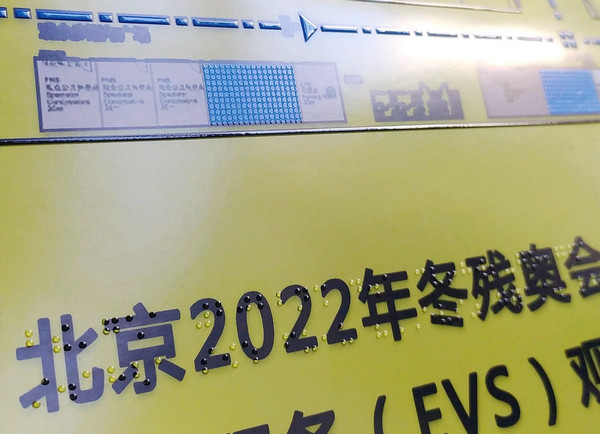Scientific innovations focus on blind people's challenges


Dedicated to help
The innovative technology has been adopted in various settings across China, with the first few batches of tactile postcards and maps specifically designed for the visually impaired introduced in museums and libraries in Nanjing and Fuzhou cities.
At the Beijing Daxing International Airport, Song and his team's research was represented through tactile signage that helped visually impaired travelers get around and significantly enhanced the airport's accessibility services.
To further improve the reading experiences of the visually impaired, Song developed multisensory printing products.
"Relying solely on touch significantly limits the information available to people with visual impairments. By integrating auditory and olfactory elements into the ink, our aim is to provide them with a comprehensive sensory experience," he said.
Utilizing the new technology, people can print a Braille book where, upon a visually impaired person touching objects like an apple or a pear in the picture book, they can also experience the genuine scents of the corresponding fruits. The innovation is set to significantly compensate for the lack of visual input.
"We aspire to extend these benefits to blind individuals worldwide," Song said. He is actively exploring potential collaborations with international disability support organizations and Braille printing houses to share the technology and enhance the lives of visually impaired people globally.
About a decade ago, Song had an encounter with a young visually impaired girl who was singing You are My Bright Eyes, originally performed by a visually impaired singer named Xiao Huangqi.
"I was deeply touched by the lyrics and the girl's performance," Song said.
From that moment on, he said: "I started to think how we could help improve the lives of the blind by scientific research, and I found a field that requires more attention — Braille printing."
Song said he believes that scientific research should be motivated by the needs of society. He and his team have begun experiments to develop and print high-performance, resilient cochlear implants for those with hearing disabilities, as well as innovative facial expression recognition systems for individuals unable to speak.
"It's vital to concentrate on the less noticeable areas, to attend to what others might overlook," he said.
Jiang Duo contributed to this story.




































